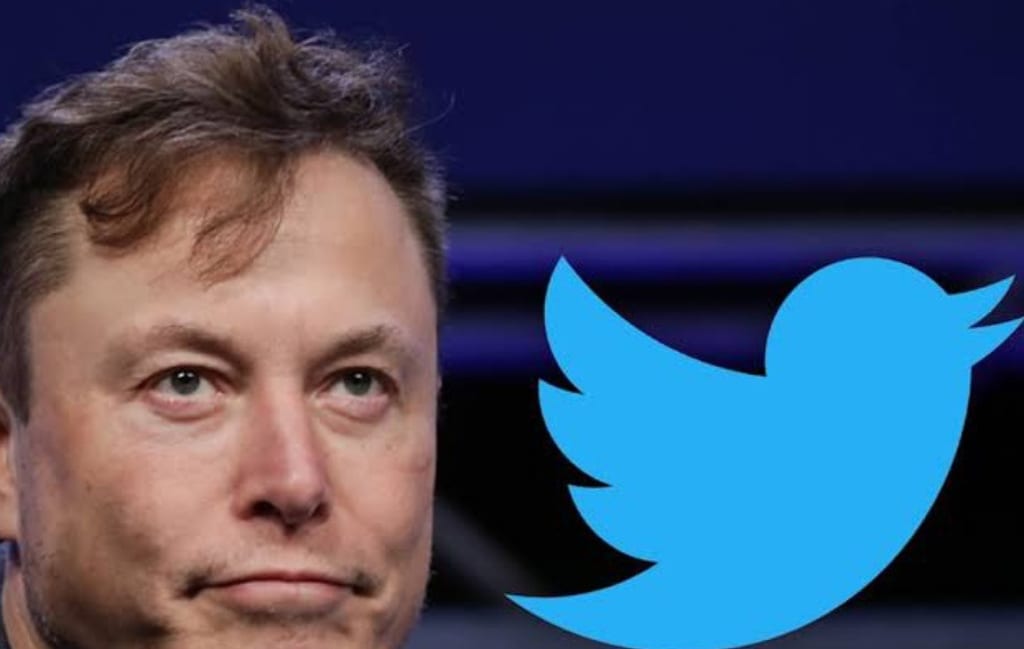Why Elon Musk Bought Twitter
Why Elon Musk Bought Twitter

On Monday, Elon Musk purchased Twitter for 44 billion dollars. Musk, the C.E.O. of Tesla and the most extravagant man on the planet, plans to take the online entertainment organization private, and has said that he believes Twitter should stick all the more near the standards of free discourse, which, in an explanation, Musk called "the bedrock of a working majority rules government." (In a similar articulation, he portrayed Twitter as the "computerized town square where matters essential to the eventual fate of humankind are discussed.") Musk himself is a successive tweeter, and it is expected that he will keep on utilizing the stage, and possibly reestablish the record of previous President Donald Trump. He is additionally remembered to be more averse to boycott individuals for infringement of the stage's arrangements, which themselves might change.
To discuss Musk and what's on the horizon for his freshest procurement, I talked by telephone with Matt Levine, a Bloomberg Opinion writer who has been exhaustively investigating and breaking down this story over the course of the last month in his bulletin. During our discussion, which has been altered for length and clearness, we talked about how Musk has utilized Twitter to additional his financial matters, how he sees the right to speak freely of discourse, and why Twitter's impact has long outperformed its monetary worth.
For what reason do you suppose Elon Musk is purchasing Twitter?
I accept this is on the grounds that he has some authentic arrangement of political and social convictions about how Twitter ought to be run, and he feels prefer it isn't being run as such. I additionally believe that he gets a ton of delight and utility out of tweeting and maintains that it should be streamlined for his utilization. The worth of his organization is improved by his being an extremely peculiar individual of note on Twitter, thus he obviously sees a great deal of significant worth in tweeting, and presumably needs to claim that for himself.
As far as the way that you depicted him involving Twitter for his business picture and financial matters, would he say he is sui generis, or do you see this all the more generally now?
I believe it's difficult to mimic him, yet I think individuals are, and I feel that the exemplary model over the most recent five years or so has been the ascent of image stocks: organizations like AMC and GameStop got extremely high market valuations and collected huge load of cash through virtual entertainment, prevalence, and game images. Adam Aron is the C.E.O. of AMC, and he's this Harvard Business School graduate, a person who's worked at customary corporate positions. Furthermore, he's truly embraced the image stock stuff, and does a ton of abnormal stuff via online entertainment since his fans on Reddit and Twitter truly that way and it is by all accounts great for the stock. What's more, he's unsure about saying he works for retail image financial backers now, and he will do things that enticement for them.
I think there was this long-term discernment that, assuming you were a powerful corporate individual, you could cause problems on Twitter and you ought to compose boring things that are screened by legal counselors. Also, I think individuals are perceiving that Elon Musk has made a ton of significant worth for his organizations by being off the wall on Twitter. Also, I think there are imitators, and I believe we're somewhat right off the bat in the game. There will be more imitators. Furthermore, that applies to governmental issues. It's the conspicuous partner, where individuals have understood that you can make a great deal of roughage politically by being a banner.
Is there anything we can tell from his S.E.C. filings or different explanations about what his arrangements are for Twitter?
I can not tell anything. He talked at the ted gathering about it. He made statements like he needs more free discourse, he needs to not forever boycott individuals, he needs less reliance on publicizing since he believes that is awful with the expectation of complimentary discourse — which it is, coincidentally. That's what I believe, on the off chance that you unmoderate Twitter, you will switch off promoters. On the off chance that you couldn't care less about sponsors, then you can have a more unmoderated Twitter. That's what things like. Musk recently tweeted that he believes his most awful pundits should stay on Twitter, since that free discourse implies. I think a many individuals are stressed that he will boycott his faultfinders.
From a corporate-finance viewpoint, the thought is that you purchase Twitter and afterward it'll be a privately owned business and he'll simply control it. So he doesn't have to introduce a marketable strategy to, for example, the top managerial staff of Twitter or the investors of Twitter. He can simply say the business line: you take the money and disappear, and afterward it's my organization to control. So he expressed a few things. They're not restricting on him. Assuming he possesses the organization, he claims the organization, and he can sort of do what he needs.
Then again, he is getting cash from untouchables: he's getting cash from banks, and possibly from value accomplices. Thus, apparently, he has some strategy for that, where he's colloquialism, "This is the means by which I will bring in cash with Twitter." He's made clamors about memberships.





Comments
There are no comments for this story
Be the first to respond and start the conversation.